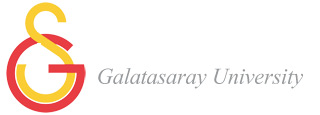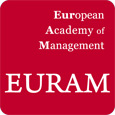 |
||||
|
Democratising Management
Demands for democracy in different parts of the world have recently drawn global attention. Business as one of the major power centres in modern society may not stay out of the scope of the social demands for democracy. Thus, the new outlook of the world may encourage us to reflect about the notion of democracy in the context of business organisations, and the ways in which it could be introduced or enhanced. Current debates in management point to the need for reassessment of existing structures, processes, inter and intra organisational relations and management practices for a fair treatment of different stakeholders’ interests. As a governance system that focuses on the supreme goal to include diverse opinions and views into the functioning of society, democracy may represent a novel (maybe even revolutionary) way to think about, govern and act in the management of business activities as well.
Scholarly work that draws links between different aspects of business life and democracy is relatively limited in mainstream management research. There is work on the democratic workplace, but this is only a limited, although valuable, way to apply the notion. A full stakeholder-based view of the firm, for example, based on the notion of an implicit social contract between business and society, is a broader way in which some of the tenets of democracy have been discussed. And then work on novel corporate governance models, public-private partnerships, responsible management education, the management of diversity, social entrepreneurship and innovation is all related to some key aspects of an ongoing process of democratisation of business life. Multidisciplinary perspectives, encompassing a wide array of knowledge domains, research methods and ideologies may enlighten business communities on a global scale about the logic and the ways of democratising management. There is a need to identify historical factors as well as existing values and implicitly legitimised relationships in the business world that may explain the status quo across firms, sectors and institutional as well as cultural contexts. There is also the need to identify the factors that might contribute to or limit the processes of democratisation of management across all the diverse dimensions and forms of interest. Ultimately, we need to understand the conditions under which increasing levels of democracy in business firms may contribute to the advancement of society towards sustainable models of socio-economic development.
EURAM 2013 aims to offer a platform to discuss the opportunities, the challenges and the processes related to democratising management across the wide range of topics related to this notion. Advancing along this highly inspirational, and yet particularly complex agenda requires us as management scholars to exit our comfort zone, bridge the gaps with other social sciences interested in similar or related phenomena and, most importantly, engage in meaningful and powerful ways the key stakeholders in our scholarship and educational mission: the businesses, the institutions and civil society.
We believe Istanbul, with its unique position that bridges Europe and Asia and with its multicultural history, is the ideal place to stimulate different ideas for exploring different ways of democratising management. Istanbul, as one of the oldest cities in the world has been the capital of the Byzantine and Ottoman empires and has hosted many other civilizations, all of which contributed to its culture of diversity, tolerance and harmony. Nowadays, it is transforming into a fast growing world city. The congress will be held at the brand new Istanbul Congress Centre, located in the heart of the modern city.
We are eager to welcome you in Istanbul for a set of fascinating discussions on the frontiers of management thinking! EURAM'13 > Conference Theme |
||||
Copyright © 2012 EURAM |


